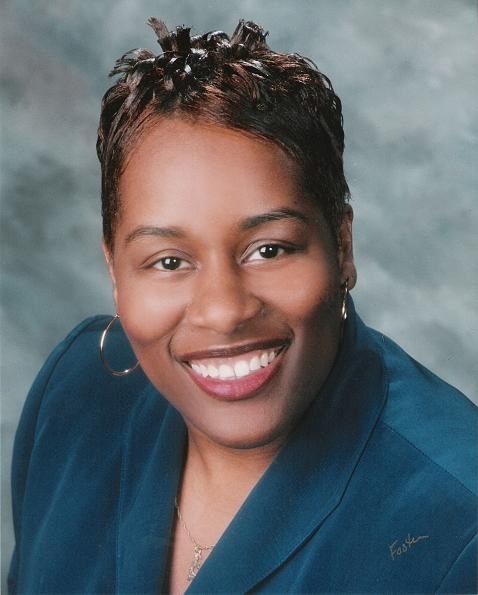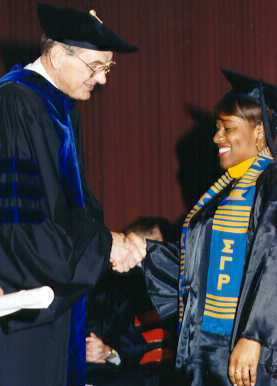
My name is Sonia, I'm the eldest of three siblings. I was born in Washington, D.C., in the U.S. On my birth certificate, my race is recorded as "Negro."
It wasn't until my early elementary school grades that I unofficially learned that Negro evolved into the acceptable term, Black (or African-American). I prefer to identify as a Black American cisgender female business owner.
I didn't grow up in a militant or culturally expressive household, so my race education came from teachers, biographical books, encyclopedias, lectures, television, or my peers.
From elementary school through 11th grade, the final level where social studies courses were a graduation requirement, we were taught a bare-boned version of U.S. Black History.
Teachers usually presented that curriculum segment in February. They taught us what the state department of education wanted us to know.
Somewhere along the way, I learned that American historian and educator Dr Carter G. Woodson was responsible for helping implement the first Negro History Week in my country. An eagerness to learn and teach others helped this observance/celebration eventually grow into Black History Month.
There seemed to be a pattern of highlighting the same few notable people from grade to grade each year, although I don't recall questioning this logic while in grade school. My primary focus was learning the information to earn a good grade on the test.
My earliest memory about "heavy" or detailed Black history was during second or third grade, while watching the Roots miniseries on television. It was based on Alex Haley's groundbreaking 1976 novel, "Roots: The Saga of an American Family."
My parents didn't seem to mind me watching this uncensored presentation, but neither did they offer any guidance or explanations of what I was watching. As a child then, I believe I "received" the overwhelming information, and tried to look for scenes I recognized from television.
Although my social studies classes through grade 8 mentioned slavery, the lessons never went into such vivid detail as I saw in Roots.
In college, I gained more critical thinking skills and life experiences to enable me to digest this nonfiction work better. I have, however, been compartmentalizing my anger until I can productively communicate or shed it.
I was impressed with the author's good fortune to trace his genealogy back so many decades to an origin in Africa and to portray it so visually and powerfully. This was "his story," and it let me know that I could find my history when I started that journey, especially with the help of DNA tracing technology. (My + History = Mystery?)
As a freshman at the University of Maryland (College Park), I remember seeing courageous students demonstrating against apartheid. They built and slept in "shantytown" tents on the large grassy plaza of the main library. I became an active leader in numerous student organizations, including Sigma Gamma Rho Sorority, Inc. – an internationally recognized historically Black sorority.

I also worked on- and off-campus part-time jobs. My specific work department didn't sponsor or host Black History Month (BHM) programs, but there were plenty of campus events to choose from, thanks to sponsors and hosts such as the Office of Multi-Ethnic Student Education, African American Studies Dept., Nyumburu Cultural Center, Hoff Theatre, and the Black Student Union.
The BHM events included brown bag lunches, guest lecturers, book discussions, art exhibits, movie screenings, and concerts.
After college, only one of my workplaces sponsored or co-hosted BHM programming, or mentioned the observance while I was an employee. In fact, when it came to cultural observances at work, it was primarily an individual decision for respect, acknowledgment and participation.
Some people took time off from work, while others made subtle changes to their attire, appearance, or desk and office. Although I would've considered attending BHM events at work, they were nonexistent. It would have been a different story if my full-time job was at a nonprofit organization, whose mission was in the realm of celebrating Black Americans and their history in the U.S.
Social media platforms were emerging and political correctness was rising just as I left the workplace structure. Besides owning a for-profit business, my work experience has been primarily in the nonprofit sector.
Focusing on each organization's mission statement, I never became accustomed to emphasizing cultural history celebrations at work. The BHM events that I participated as a working adult were usually sponsored by local news outlets, social/fraternal organizations, religious assemblies, and community groups.
The discussion and celebration of Black History can be (and is) a sensitive topic in the U.S. It is especially challenging when some people still interpret (and teach) indisputable historical facts "differently" to the next generation.
Others have opposing views on the impact of slavery (and the pre-Civil War lifestyle accompanying it) in the U.S. Some still disagree with societal advances for equal rights and equal voting access, and feel there's no need to fix the laws rooted in oppressing Black people.
One thing I do like about BHM is the increased (re-)broadcast of movies and documentaries highlighting the contributions and sacrifices that Blacks have made to this country.
I don't appreciate when people use Black history to market causes or organizations that are proponents of, or are related to, enslaving Black people or keeping them as a permanent underclass.
I am profoundly grateful to the Public Broadcasting Service (PBS) and to the HISTORY brand (formerly History Channel) of A&E Television Networks for their educational history programming, which filled in many gaps, addressing some of my previously unanswered American history questions. They helped to spark new, complex queries for future discussions. It may have been difficult to watch, but I learned.
Black History Month in the U.S. should be a learning opportunity for all races and ethnicities. People should be able to attend BHM events with an open mind and get their intelligent, sincere, respectful questions asked and answered in a safe space.
This is not to say that we should limit the education or discussion to February. I would love to have a similar safe-space opportunity for all cultural observances. The more we learn, the less that divides us.
Note: a version of this blog was first published in February 2022.

One of the few spaces that can have real impact in improving LGBTQ+ equality is the workplace. But it takes effort; and it's not only up to our LGBTQ+ colleagues. It's up to the rest of us, too.
"Mental health issues make people feel uncomfortable. I'm not talking about people who suffer them, I mean the people who don't." - Keith Jackson
"Jordy was a retiree who had been out of the workplace for 10 years, But George had a gut feeling that Jordy was the right person for the position. So he asked him if he'd consider returning to work."
Thank you so much for sharing your reflections Sonia.
Sarah
Thanks, Sarah! I think this was my first written BHM "essay" (or report) since elementary school!